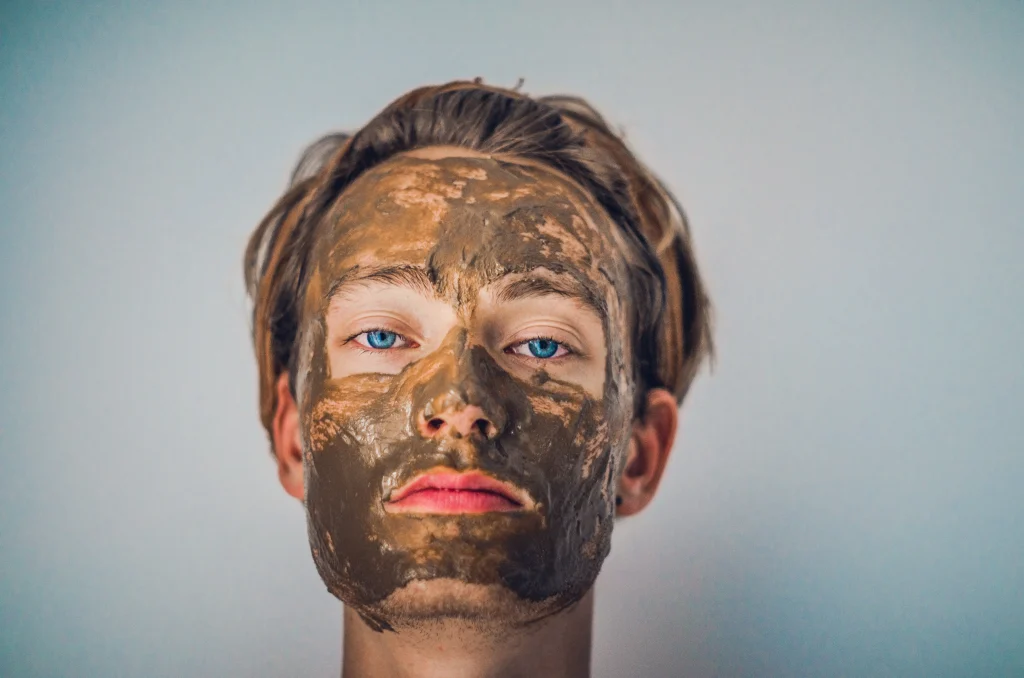Men have always kept things simple when it comes to skin maintenance. It is no secret that male skin is different from female skin.
More men are chasing healthier, younger-looking skin than ever before, making it an excellent moment for men to assess their skin care regimen and learn more about how to care for their body’s biggest organ, even to avoid bigger diseases like skin cancer.
Although men’s and women’s skin varies in important ways — for example, men’s skin is thicker than women’s — the essential aspects of a good skin care regimen remain the same. First and foremost, everyone, even guys, must recognize and understand their skin type:
After using the lotion, sensitive skin may hurt or burn
Sensitive skin can be difficult to manage. It’s prone to be inflamed. It becomes red, scratchy, and burns. Worst of all? Because you’ve abused it in some way, it doesn’t do all of this. It’s picky, reacting badly to almost everything, including sunshine, water, and most skin care treatments.
You may be irritated by the weather, home goods, stress, nutrition, or temperature fluctuations, depending on your specific sensitivity. Unfortunately, your face is the most probable spot on your body to show indications of sensitive skin.
That isn’t to imply you aren’t irritated throughout your entire body. However, your face is the part of your body that is most exposed to the elements, such as the sun, your razor, and so on.
As a result, it’s the area where you’re most likely to encounter the irritating redness and irritation that comes with sensitive skin. Early wrinkles and fine lines are also caused by skin damage and sensitivity.
Normal skin is clear and unaffected by environmental factors
What does it mean to be normal? Plain. Vanilla. Boring. Maybe that’s what comes to mind. Normal skin types, on the other hand, are great.
Skin that is normal is neither excessively oily nor too dry. It’s exactly right. Normal skin produces enough natural skin oil to keep your skin nourished without becoming greasy or glossy.
Your skin is supple and firm, yet neither tight nor dry. Your skin is clear and even-toned. While you may have a few wrinkles forming, your skin’s inherent suppleness is still holding and keeping you from looking older.
Skin that is dry, flaky skin, itchy skin, and harsh skin
Dry. Flaky. Itchy. Most men would rather not link these phrases with their skin. However, if you have dry skin, it’s difficult to avoid these typical problems.
Dry skin is a form of skin. It’s a hereditary thing. It’s not going away. The skin feels tight when it is dry. It lacks the typical and oily skin types’ inherent suppleness. Unfortunately, it’s also prone to the commencement of the aging process at a young age.
This is because it lacks the natural oils that help prevent wrinkles and fine lines from forming. Dry skin is characterized by a decrease in the production of sebum, the natural skin oil. To compensate for your body’s low oil levels and keep your skin adequately moisturized, you’ll need to apply skincare products. How can you tell whether your skin is dry?
Check for dry skin all over your body, including your face, hands, legs, and scalp, as an easy test. People with this skin type have dry skin all over since dry skin is an inherited condition. Your skin is certainly dehydrated if you’re just experiencing dryness on one portion of your body.
Shiny and greasy skin is a sign of oily skin.
This skin type is characterized by excessive sebum production (your body’s natural oil), resulting in glossy, slippery, and greasy skin. Dirt and germs can mingle with oil to clog your pores, making you prone to outbreaks and acne.
All skin types, including oily skin, have hereditary reasons. It has nothing to do with what you consume. It isn’t based on your specific preferences. You also can’t make your skin produce less oil. Instead, you should figure out what’s causing it and address it properly.
Your skin produces oil naturally all throughout your body and on your scalp. This moisturizes and protects your skin from the elements. However, you may have larger quantities of oil-producing hormones depending on your genetic makeup.
As a result, your skin produces significantly more sebum than men with dry or average skin. The good news is that oily skin isn’t always undesirable. All you have to do now is approach your skincare routine with your oily skin in mind.
Instead of picking soaps, shampoos, and moisturizers at random, utilize this guide to find products that are tailored to your needs. In certain regions, combination skin is dry, while in others, it is oily.

Understanding your skin type will assist you in learning how to care for your skin and selecting appropriate skin care products.
How to Care for Your Normal Skin
Most males with normal skin make a significant blunder here. They believe that if they put any product on their natural skin, it will look and feel amazing.
Unfortunately, this is not the case. Normal skin is naturally balanced, meaning it is well hydrated yet not overly greasy.
However, depending on what you expose your skin to throughout the day, this might alter fast. You are affected by the sun, perspiration, wind, dry air, and dirt.
These variables can contribute to breakouts, irritation, uneven skin tone, and skin damage if you get complacent. Take your healthy skin for granted.
Even if you don’t require a comprehensive skincare routine, a smart yet easy routine is still necessary.
How To Treat Men’s Dry, Flaky Skin, Itchy skin
The shower is the starting point for a holistic approach to healing dry skin. Dehydration is a big no-no for guys with dry skin. Unfortunately, many guys make blunders in the shower on a regular basis (s).
Here’s how to stay away from them: Use Lukewarm Water – For males with dry skin, hot water (particularly extended contact to it during a luxury shower) is bad news. It removes your skin’s outermost protective layer, dehydrating it and depriving it of the oil it requires to keep balanced. Moisturizing Body Wash is the best option.
Most soaps include detergents that are bad for dry skin. They remove dirt and oil, but in a slash-and-burn method that dehydrates and strips your skin of all its natural moisture. A softer body cleanser like our Invigorating Body Wash, which contains moisturizing ingredients like glycerin, jojoba, and aloe vera, leaving you clean yet moisturized.
How to Treat Oily Skin
Skin that is oily has a strong appearance. It isn’t as fussy as sensitive skin and isn’t as prone to irritation. When you utilize skincare products, you won’t have to worry about it flaring up and becoming itchy or otherwise reacting.
Controlling the quantity of oil on your skin is your primary focus. If you use harsh solutions to get rid of it completely, your body may respond by creating even more sebum. As a result, you’ll need a well-balanced, intelligent approach to face care that won’t worsen your problems.
How to Treat Combination Skin
Because your skin is a mix of dry, oily, and normal, your skincare regimen should be diverse and focused. The same 3-step daily approach can help your skin once more: Face wash should be used twice a day, once in the morning and again in the evening.
Because portions of your skin may be dry or sensitive, a natural scented (or unscented), the irritation-free product is your best choice.
Exfoliate – Because your combination skin is only oily in the T-zone, you’ll get greater results if you only use a face scrub on that part of your face.
Face moisturizer will help you maintain a good balance of moisture, regardless of your skin type. Our oil-free Daily Essential Face Moisturizer is intended to work with mixed skin without irritating it.
We never use alcohol or soap (as you may have guessed, we despise soap). Instead, look for components like coconut oil, Kakadu plum extract, white tea-leaf extract, and shea butter, which have been shown to keep skin healthy and moisturized.
Moisturizers are the (natural) tonic your skin will appreciate for clearer, firmer skin that appears younger and healthier.
Check out some skincare products for men on Cetaphil
Read more articles in the Lifestyle Category
